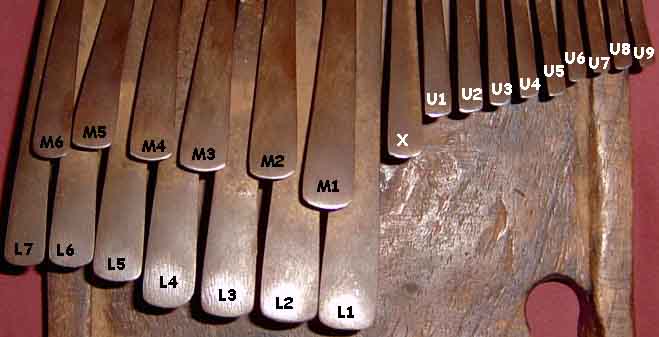
TACOMA, Washington — Two master players of the African mbira — a metal-keyed instrument used by the Shona people of Zimbabwe in sacred ceremonies — Erica Azim and Fradreck Mujuru are on a national tour of the United States introducing audiences to the mbira, an instrument played for more than a thousand years in southern Africa, but only made familiar to enthusiasts on other continents over the past six decades.
pugetsound.edu
Mbira: Music of the Spirits of Zimbabwe will take place at 7:30pm on Wednesday in Kilworth Memorial Chapel, University of Puget Sound. The free concert is open to the public and is part of a two-day residency on campus by the musicians.
“The music of the mbira is not what many people here might think of as traditional African music,” said organiser Gwynne Kuhner Brown, associate professor of music history and music theory at Puget Sound.
“It has the complex rhythms we expect, but also beautiful harmonies and the unfamiliar sound of the instrument’s vibrating metal keys.”
At the concert, Azim and Mujuru will play interlocking parts on their two mbiras — instruments with 22 to 28 metal keys mounted on a hardwood soundboard that sits inside a large gourd resonator. The two musicians will also sing.
Attendees will learn about the ancient culture of the Shona people of Zimbabwe and the role the mbira plays in religious ceremonies and social gatherings, such as weddings and the celebration of official holidays. In Shona traditional religion, all-night ceremonies are held in which the instrument is thought to aid people in communicating with ancestral spirits by putting tribal members in a trance. A musical repertoire of hundreds of pieces has been passed on from generation to generation.
“I have been playing the mbira for 10 years — Azim was my first teacher,” Brown said. “She is a tireless advocate and teacher of this music in the United States, and has worked hard for many years to champion and support the musicians and instrument makers in Zimbabwe who are keeping this tradition alive.”
- Chamisa under fire over US$120K donation
- Mavhunga puts DeMbare into Chibuku quarterfinals
- Pension funds bet on Cabora Bassa oilfields
- Councils defy govt fire tender directive
Keep Reading
Azim is a Californian, who fell in love with Shona mbira music when she first heard it at the age of 16. After studying Shona music with Abraham Dumisani Maraire at University of Washington for two years, she decided to learn to play the mbira used in ceremonies. She began learning the instrument by ear and in 1974, she travelled to Zimbabwe to study with traditional mbira masters.
Mujuru, grandson of the Shona people’s legendary Muchatera Mujuru, grew up in the largest extended family of mbira players in Zimbabwe. He began to play at the age of eight and later learned to build mbiras, which he today sells worldwide.











